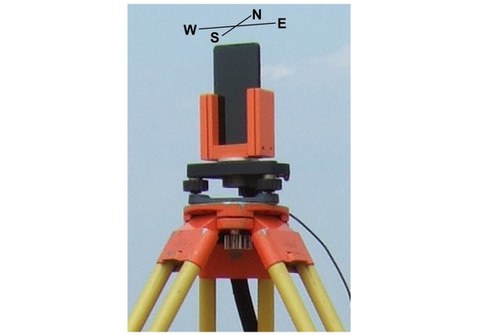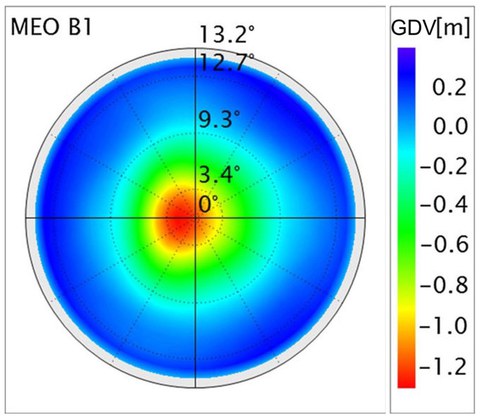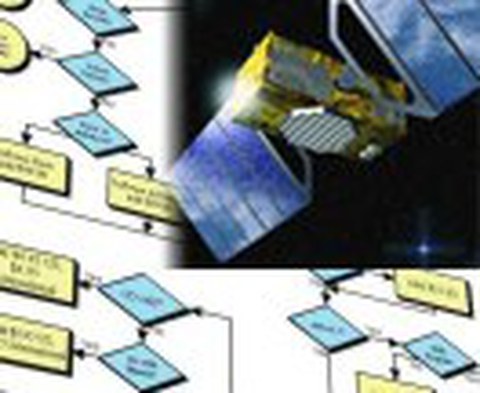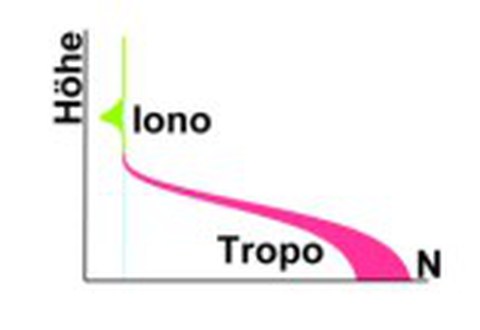Forschungsthemen
Zentimeter-genaue GNSS-Positionsbestimmung mit Smartphones
Seit das Android-Betriebssystem um Schnittstellen für GNSS Rohdaten erweitert wurde, ist die Untersuchung und Nutzung dieser Daten leicht möglich. Weiterhin sind jetzt erstmals einige wenige Geräte auf dem Markt, die auch Phasendaten liefern, insbesondere auch kalibrierte Phasendaten, die eine Festsetzung der Phasenmehrdeutigkeiten ermöglichen...
Richtungsabhängigkeit von Code-Verzögerungen der GNSS-Sende- und Empfangsantennen – Group Delay Variations (GDV)
Nicht nur die GNSS-Phasen, sondern auch die Codedaten werden durch Aussende- und Empfangsantennen richtungsabhängig verzögert. Diese Verzögerungen werden als Group Delay Variations (GDV) bezeichnet. Sie können durch Kalibriermessungen und -auswertungen bestimmt und als Korrektionen an Code-Messungen angebracht werden. Wir führen keine speziellen Kalibriermessungen durch, sondern ... ...mehr
Algorithmenentwicklung und -umsetzung für GNSS-Datenprozessierung
Die satellitengestützte Positionsbestimmung mit Hilfe globaler Navigationssatellitensysteme (GNSS) macht gerade einem großen Wandel durch. Die Modernisierung von GPS und GLONASS, der Aufbau von Galileo und BeiDou und die Erweiterung von Zusatzsystemen wie SBAS, QZSS und IRNSS lassen ein sehr komplexes Gesamtsystem entstehen. Ein großer Teil der geodätischen Expertise ...
... mehr
Kalibrierung von GNSS-Empfangsantennen
GNSS-Empfangsantennen stellen Sensoren zur präzisen Bestimmung von 3D-Koordinaten dar. Fertigungsbedingt ergeben sich Abweichungen zwischen dem geometrischen Zentrum (inkl. Höhenbezugspunkt) und dem elektrischen Empfangszentrum einer Antenne. Diese Abweichungen sind sowohl von der Frequenz als auch vom Einfallswinkel (Azimut und Elevation) der GNSS-Signale abhängig ...
... mehr
Wandel geodätischer Positionsbestimmung aufgrund satellitengestützter Techniken
Der Einsatz satellitengestützter Techniken - also GNSS - hat die Durchführung geodätischer Positionsbestimmung grundlegend geändert und wird auch in Zukunft durch die schnelle Weiterentwicklung der GNSS weitere Veränderungen nach sich ziehen ...
... mehr
Atmosphärenbeobachtungen mit Hilfe von GNSS-Signalen
Die Laufzeitverzögerungen, die die GNSS-Satellitensignale auf ihrem Weg durch die Erdatmosphäre (im Wesentlichen durch Ionosphäre und Troposphäre) erfahren, beeinflussen die geodätische Nutzung dieser Systeme. Zwar können die größten Anteile dieser Verzögerungen ...





